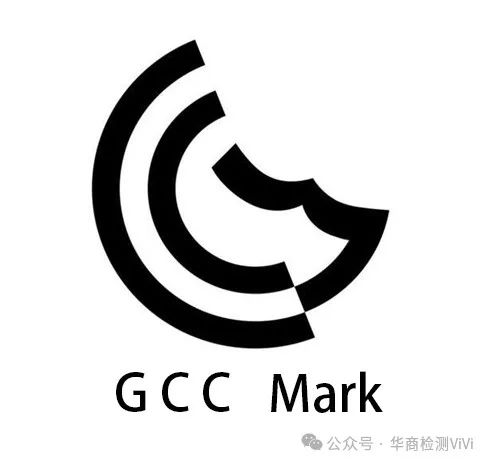In the wave of global trade, countries have established various product certification standards to protect the rights of their consumers and maintain market order. For companies looking to enter the Gulf Cooperation Council (GCC) member states market, GCC certification is an indispensable “key”. This article will provide a detailed introduction to the steps and related information of GCC certification.


Overview of GCC Certification
The Gulf Cooperation Council was established on May 25, 1981, and its member states include Saudi Arabia, Kuwait, the United Arab Emirates, Qatar, the Sultanate of Oman, the Kingdom of Bahrain, and Yemen. GCC certification is the access certificate for products entering the markets of these seven member states, aimed at ensuring that products comply with relevant safety, health, and environmental regulations in the region, protecting consumer interests and promoting fair competition in the market.
Currently, there are 14 specific product categories included in the mandatory certification scope of GCC, which covers household electric fans, refrigerators/freezers and other household refrigeration equipment, centrifugal clothes dryers/washing machines, food grinders and mixers/fruit or vegetable juicers, household toasters, electric hair clippers and hand dryers, household electric heating devices, microwave ovens, other electric stoves, electric instantaneous water heaters, storage water heaters, immersion liquid heaters, electric irons, plugs, sockets, adapters, power cords and extension cord chargers, air conditioners, toy products, etc. These products are closely related to people’s daily lives, so strict certification control is of great significance.

Detailed Steps for GCC Certification
1. Preparation Before Application
- Confirm Product Scope: Companies must first accurately determine whether their products fall within the mandatory scope of GCC certification. If the product is within the certification scope, they must further clarify its specific category and corresponding standards. For example, for a multifunctional kitchen appliance, it is necessary to determine its core function classification to find the matching certification standard details.
- Collect Relevant Information: Prepare a detailed product manual, which should include key information such as product functions, features, usage methods, technical parameters, etc.; provide accurate and clear technical drawings to show the product’s structural design; additionally, prepare any past test reports that may be relevant (if available) to help the certification body fully understand the product situation.
2. Application
- Select Certification Body: Companies need to choose a certification body authorized and recognized by the GCC. Different certification bodies may vary in service quality, certification efficiency, and fee standards, so companies should consider multiple factors, such as the institution’s reputation and the number of past successful cases.
- Fill Out Application Form: Request the GCC certification application form from the selected certification body and fill it out truthfully. The application form typically includes the applicant’s basic information, such as company name, address, contact information, etc.; product information, including product name, model, brand, manufacturer, etc.; and the specific category for which certification is being applied.
3. Product Testing
- Sample Submission: Companies must send samples in the quantity and specifications required by the certification body to the designated laboratory. The samples should ensure they represent the actual production level of qualified products, and protective measures should be taken during transportation to avoid damage that could affect test results.
- Implementation of Testing Items: The certification body conducts comprehensive testing of the product according to GCC-related standards. For electrical products, electrical safety performance tests will be conducted, including ground continuity, insulation resistance, electrical strength, etc., to ensure that the product does not pose electric shock or other safety risks to users under normal and abnormal conditions; for toy products, in addition to physical and mechanical performance testing, checking whether toy components are easily detachable and could be ingested by children, chemical safety tests will also be conducted to detect whether the toy materials contain excessive harmful chemicals, such as lead, mercury, and formaldehyde.
4. Factory Inspection (for certain products)
- Inspection Arrangement: For certain specific products, such as electrical products, the certification body will communicate with the company in advance to determine the time and specific arrangements for the factory inspection. The company must make appropriate preparations to ensure the inspection process goes smoothly.
- Inspection Content: The inspection mainly focuses on production equipment, checking whether the equipment meets the requirements for producing standard-compliant products and whether it is regularly maintained; in terms of process flow, examining whether the entire production process from raw material procurement to final product shipment is reasonable and whether there are clear quality control points; the quality management system is also a key inspection target, assessing whether the company has established a sound quality management system, with strict controls at all stages from raw material inspection, semi-finished product inspection during production, to finished product inspection.
5. Review and Certification Issuance
- Document Review: The certification body conducts a comprehensive and detailed review of the application materials submitted by the company, product test reports, and factory inspection results (if any). Ensuring that all materials are complete and accurate, that product test results meet standard requirements, and that factory production conditions meet the ability to continuously produce qualified products.
- Certificate Issuance: If the review is passed, the certification body will issue a GCC certification certificate to the company. The certificate will clearly indicate product information, including product name, model, etc.; certification validity period; certification body name, and other important content. After receiving the certificate, the company should carefully verify the certificate information and promptly communicate with the certification body for corrections if there are any errors.6. Market Supervision
- Violation Handling: Once a product is found to be non-compliant with certification requirements, regulatory authorities will take corresponding punitive measures, which may include ordering the company to recall the product, imposing fines, and in severe cases, revoking the company’s GCC certification, prohibiting the product from being sold in the market. If the company wants to regain certification, it must rectify the product and go through the certification process again.
- Daily Supervision: After the product enters the market of GCC member states, the certification body and local regulatory authorities will conduct daily market supervision. By randomly checking products sold in the market, they will verify whether they are consistent with the samples certified and whether they still meet relevant standard requirements.
GCC certification is crucial for companies to open up the Gulf market. Although the certification process is relatively complex, as long as companies strictly follow the steps and ensure product quality meets the standards, they can successfully obtain this “pass” to the Gulf market and achieve better development in the region.
Focus on Authoritative Testing
EMC | Safety Regulations | Performance Testing | Optical Testing | Batteries | Automotive Electronics
Currently, over 100,000 people have followed and joined us















Web : www.ctc-labs.comMobile:18002527716 For more inquiries, please add WeChat for details.
For more inquiries, please add WeChat for details.
Previous Recommendations
In-depth Analysis of RoHS Certification: An Inevitable Choice for Environmental Protection and Development
Comprehensive Analysis of CCC Certification: Overview of Key Elements
FCC Certification – The Key to Market Access in the United States